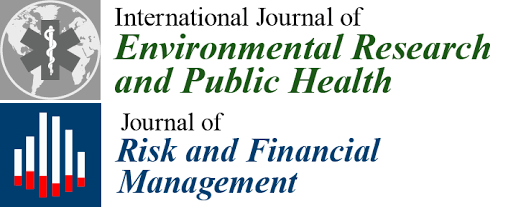Web of Science discontinues MDPI flagship journal
Clarivate Discontinues IJERPH and JRFM Coverage in Web of Science
On March 15, 2023, Clarivate discontinued coverage of the “International Journal of Environmental Research and Public Health” (IJERPH) and the “Journal of Risk and Financial Management” (JRFM) in Web of Science as of 13 and 22 February, respectively. Clarivate found that both journals failed the Content Relevance criterion, highlighting publications that were deemed outside the scope of the journal. On March 22, MDPI announced the news on its official website. The move will likely upset the journal authors, who pay hefty fees to publish in these journals. Also, it may caution the authors of other journals by MDPI.
Clarivate periodically evaluates journals indexed in their collections, and any journals that no longer meet their criteria are removed from coverage. According to MDPI, publishers are not informed about the evaluation process until its completion.
It should be noted that IJERPH is one of the flagship journals of MDPI, a renowned but controversial publisher of peer-reviewed, open-access journals since its establishment in 1996 in Basel, Switzerland. The publisher is well-known for its high Article Processing Charges (APC) and fast response rate.
On its blog, Clarivate stated, “The quality of the content we accept into the Web of Science Core Collection™ is paramount to us. As the creator of the world’s leading publisher-independent global citation database, we remain true to our long heritage of objectivity, selectivity and collection dynamics, while adapting to changes in the research ecosystem and the scholarly publishing landscape…Only a fraction of journals pass our quality criteria (less than 15%)…Any journal that no longer meets our quality criteria is removed from coverage.”
“Once we determine that a journal no longer meets our quality criteria, we have a responsibility to act. We will continue to identify journals of concern and de-list any journals which fail to meet our quality criteria,” says the Clarivate blog.

MDPI’s problems are not new. A few days back, Professor Gemma Derrick tweeted about her resignation from the position of editor-in-chief of the MDPI journal “Publications.” She stated that the “increasing discourse within [her] professional community around the predatory publishing practices of MDPI journals” is one of the reasons for resigning. On January 3, Zhejiang Gonggong University, a Chinese public university in Hangzhou, announced that all the journals of the three largest Open Access (OA) publishing houses – MDPI, Hindawi and Frontiers – were blacklisted. In 2018, it was reported that 10 senior editors (including the editor-in-chief) of the MDPI journal “Nutrients” resigned, alleging that the publisher pressured them to accept manuscripts of mediocre quality and importance. It seems the woes of MDPI are not going to end anytime soon. In fact, it is very likely that other open-access commercial publishers, such as Hindawi and Frontiers, may also feel some heat in the coming days. This wave against pioneers of commercial open-access publishing is coming at a time when their rivals, such as Elsevier and Springer, have launched their own open-access journals. Is it all about business competition or the integrity of science? Time will tell.

